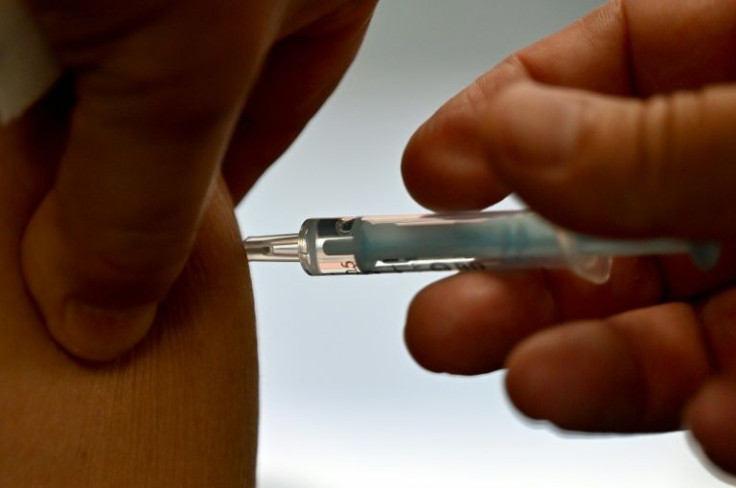Could A COVID Vaccine Patch Be The Next Defense Against The Virus? Study Underway
As an alternative to injections, arm patches could be an option to combat the spread of COVID-19 in lieu of current vaccines. On Wednesday, Swiss medical researchers said they are in early-stage studies of an alternative COVID-19 vaccine candidate that would be administered through an arm patch, according to Reuters.
The study vaccinated 26 volunteers, starting on Jan. 10, with plans to provide two doses each — one base dose, followed by a slightly stronger dose — with six months of monitoring, according to reports.
Reuters reported how the PepGNP-COVID-19 vaccine patch works by targeting the T cells, which manage cellular immunity to help eliminate the cells that are infected by the virus to prevent them from replicating, which is a departure from current COVID vaccines, which stimulate antibody production.
The trial of the PepGNP-COVID-19 vaccine patch may prove to be more durable and effective at protecting against potential variants of the virus. Professor Blaise Genton, who headed the study, told Reuters the cellular immunity from the vaccine candidate generates what is called “memory cells.”
To administer the patch, a series of microneedles less than one millimeter deep inside the patch would be pressed against the skin briefly, with hopes that the vaccine would provide long-term immunity and eliminate the need for seasonal booster shots.
“We hope to have a longer period of protection ... we don't know yet, but it could be one year, two years, three years," Genton said.
The vaccine candidate was developed by U.K.-based Emergex Vaccines Holdings, with the Unisante medical research center in Lausanne, Switzerland, and CHUV hospital holding the clinical trials.
The news comes after Australian researchers said in late October that they developed a 1cm x 1cm microneedle skin patch that was “superior to traditional needle-and-syringe vaccination."
In 2018, researchers in Wales reported on the effectiveness of smart patches with microneedles to deliver insulin to treat diabetes.

© Copyright IBTimes 2025. All rights reserved.





















